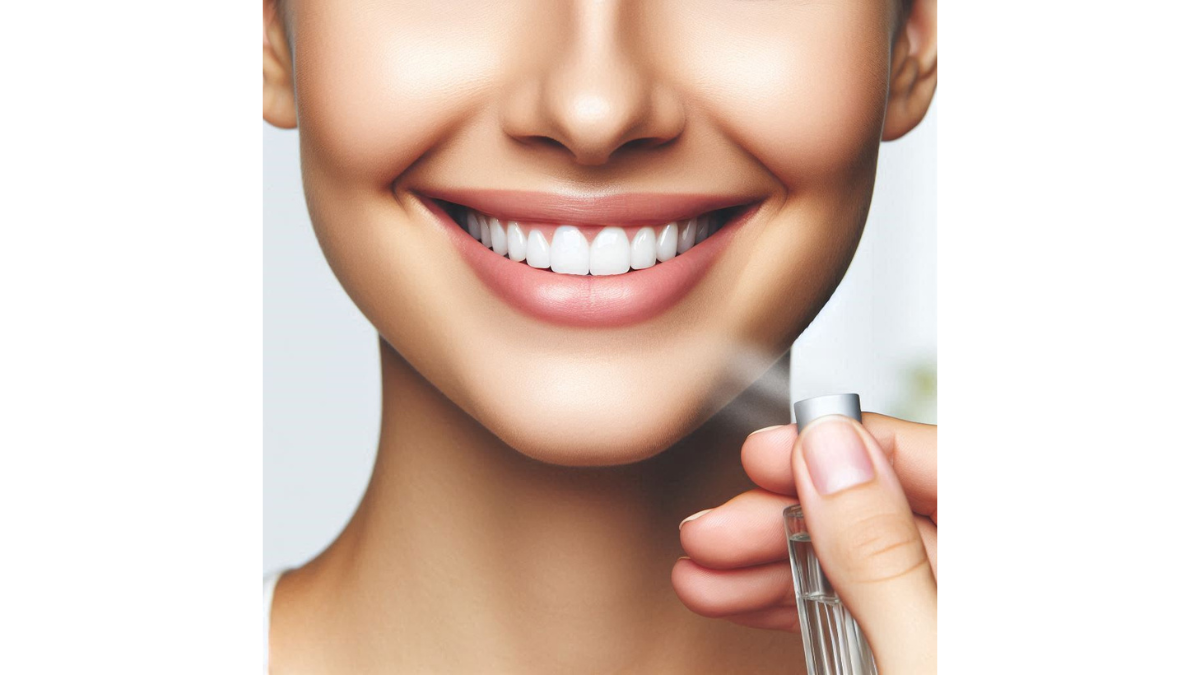Fresh Ideas for Tackling Bad Smells Coming from Mouth and Nose

Fresh Ideas for Tackling Bad Smells Coming from Mouth and Nose – Bad smells emanating from the mouth and nose can be not only an embarrassing issue but also a significant indicator of underlying health problems. Understanding the causes of these odors is the first step toward effective solutions. The primary cause of halitosis, or bad breath, often lies in the mouth itself. Here are some common contributors:
- Bacterial Growth: Our mouths are home to a plethora of bacteria. When food particles are left unbrushed, they become a feast for these bacteria, leading to the production of sulfur compounds that create unpleasant odors.
- Food Choices: Certain foods, like garlic, onions, and spicy cuisines, contain volatile compounds that can linger even after you’ve brushed your teeth. Remember that time you had a delicious garlic bread, only to realize later that the smell clung to you like an unwelcome guest?
- Poor Oral Hygiene: Skipping your brushing and flossing routine can lead to plaque buildup, which harbors bacteria and produces bad smells. This serves as a reminder of a lesson many of us learned in childhood—keeping your teeth clean is essential!
- Dry Mouth: Saliva plays a crucial role in washing away food particles and bacteria. A condition known as xerostomia, or dry mouth, limits saliva production, creating a perfect environment for odor-causing bacteria to thrive. If you find yourself talking a lot during that important meeting and your mouth feels parched, it may be a sign of this condition.
- Underlying Health Issues: Sometimes, persistent bad breath can point to other health concerns, such as gum disease, diabetes, or even respiratory infections. Therefore, it’s crucial to pay attention to these odors.
These causes highlight the importance of being proactive about oral health. Understanding the root of the issue allows you to take meaningful steps towards a fresher breath.
Common Misconceptions about Oral Hygiene
There are many misconceptions surrounding oral hygiene that can lead to ineffective practices. Let’s debunk some common myths:
- Myth: Brushing Once a Day is Enough. Reality: You should brush your teeth at least twice a day for two minutes each time. In fact, I’ve found that the fresh feeling in my mouth after a thorough brushing encourages me to maintain healthy habits throughout the day.
- Myth: Breath Fresheners Can Replace Proper Dental Care. Reality: While mints and breath sprays can mask bad smells temporarily, they do not address the underlying causes. Relying solely on fresheners can lead you to neglect essential tasks like brushing and flossing. Remember, it’s like putting a Band-Aid on a wound without addressing the actual injury.
- Myth: Sugary Foods Are the Only Culprits Behind Cavities. Reality: While sugar is indeed a leading cause of dental decay, acidic foods and drinks can also erode enamel, leading to plaque buildup. Keep an eye on your total diet, as it all contributes to your oral health.
- Myth: Natural Remedies Are Always Better. Reality: Although natural solutions like baking soda or essential oils have their benefits, they should complement, not replace, traditional oral care. It’s always best to consult your dentist for guidance on effective treatments.
- Myth: Flossing is Optional. Reality: Flossing is a crucial aspect of oral hygiene, as it removes food particles and plaque from areas a toothbrush cannot reach. My dentist once told me, “Flossing is like your mouth’s nightly team meeting—it enables everyone to address the issues that brushing may overlook.”
Healthy Habits for Fresh Breath
Proper Brushing Techniques
Now that you’ve familiarized yourself with the causes of bad smells and the misconceptions surrounding oral hygiene, it’s time to delve into healthy habits that ensure fresh breath. The cornerstone of oral care is, undoubtedly, brushing your teeth— but are you doing it correctly? To maximize your oral health, consider the following proper brushing techniques:
- Use the Right Toothbrush: Choose a toothbrush with soft bristles. A hard-bristled brush can damage your gums and root surfaces. Personally, I love using an electric toothbrush for its efficiency, but a manual brush works just as well if used correctly.
- Angle Your Brush: Aim for a 45-degree angle towards your gums. This angle allows the bristles to effectively clean the gum line, where bacteria often accumulate. It’s a subtle change that can make a significant difference.
- Brush for Two Minutes: Set a timer or play your favorite song to ensure you brush for the full two minutes. Spending less time brushing means you may miss some crucial areas where plaque can build up. To keep it engaging, I often find myself creating a little game to cover all areas evenly within the recommended time.
Proper Brushing Techniques
- Don’t Forget the Tongue: A significant number of odor-causing bacteria linger on the tongue. Gently brush your tongue or use a tongue scraper. Adopting this practice made me consciously more aware of my breath, lending me greater confidence throughout the day.
- Be Gentle: Brushing too hard can lead to gum recession and enamel wear. A gentle touch is all that’s needed for effective cleaning. As my dentist wisely noted, “Think of brushing like a slow dance; it’s not a competition on who can scrub harder!”
- Replace Your Toothbrush Regularly: Every three to four months or sooner if the bristles are frayed. A worn-out toothbrush won’t clean effectively and can actually harbor bacteria.
By implementing these techniques, you not only enhance your oral care routine but also pave the way for fresh breath every day.
Benefits of Using Mouthwash
While proper brushing is essential, mouthwash can be a valuable addition to your oral hygiene arsenal. Many might overlook this step, but using mouthwash regularly has numerous benefits:
- Freshens Breath Instantly: One of the most immediate effects of using mouthwash is that it freshens your breath, making it a quick solution before heading into a meeting or social event. I can recall a time when a spritz of mouthwash after lunch saved my confidence during a presentation!
- Reduces Plaque and Gingivitis: Many mouthwashes contain antibacterial properties that can help reduce plaque buildup— a significant contributor to bad breath and gum disease. When I included mouthwash in my routine, I noticed a difference in my dental check-ups; my dentist commented on the decreased signs of plaque.
- Reaches Areas Your Brush Might Miss: Mouthwash can spread to areas that your toothbrush cannot reach, providing an additional level of cleansing. Think of it like a supportive friend who steps in when you need help!
- Supports Overall Oral Health: Many mouthwashes are formulated with fluoride, which strengthens your enamel and helps prevent cavities. It’s the kind of extra support we all need for our smiles.
- Ideal for Dry Mouth Situations: If you often find yourself in dry mouth conditions due to medication or other factors, mouthwash can help moisten and cleanse your mouth, thus combating odor. I’ve found some alcohol-free options to be particularly gentle and effective.
Diet and Hydration
Impact of Food Choices on Breath
As you continue to embrace healthy habits for fresh breath, it’s vital to recognize the role that diet plays in achieving your goal. What you eat not only feeds your body but also influences the way your breath smells. Let’s explore how food choices can impact your breath. Certain foods can have enduring effects on your oral health, particularly when it comes to breath freshening:
- Odorous Foods: Items like garlic and onions contain sulfur compounds that can linger long after you’ve eaten them. I remember an unforgettable dinner where I enjoyed some delicious garlic shrimp, only to be embarrassed by my breath later that evening.
- Sugary Foods and Drinks: Sugar is a major player in the development of bacteria in the mouth, which can lead to bad breath. Consuming soda, candy, or pastries can create an environment conducive to odor production. A sweet treat may satisfy your cravings, but it can leave your breath paying the price!
- Highly Processed Foods: Foods that are rich in preservatives can lead to dry mouth and contribute to bad smells. For instance, many snacks found in vending machines may be convenient but could be wreaking havoc on your breath.
- Meat: Protein-rich foods like meat can also contribute to halitosis. When proteins are broken down, they can lead to sulfur compounds as a by-product. I’ve learned to balance my protein intake and ensure I pair it with foods that offer benefits for oral health.
Impact of Food Choices on Breath
On the other hand, some foods can promote a fresher breath:
- Fruits and Vegetables: Crunchy fruits and veggies, such as apples, carrots, and celery, can help scrub your teeth while you eat. They stimulate saliva production, which naturally helps wash away food particles and bacteria. The last time I snacked on carrots, I couldn’t help but feel proud knowing I was contributing positively to my breath!
- Dairy Products: Foods like cheese act as a natural neutralizer for odors due to their low acidity and fat content. Cheese can help balance the pH in your mouth, aiding in the prevention of bad breath.
- Herbs: Fresh herbs like parsley and mint have antimicrobial properties and can freshen your breath. I often carry a small container of mint leaves with me for an instant boost!
Being mindful of your food choices can empower you to maintain fresh breath throughout the day.
Importance of Staying Hydrated
Equally important in the discussion of breath freshening is the need for proper hydration. Water plays a pivotal role in your oral health, and many might underestimate its importance. Here’s why staying hydrated is crucial:
- Promotes Saliva Production: Saliva helps neutralize acids and wash away food particles. When you’re dehydrated, your salivary glands produce less saliva, leading to a dry mouth conducive to odor. Think of saliva as your mouth’s natural cleaning agent—without it, residues linger longer, and odor develops.
- Flushes Out Toxins: Drinking water helps eliminate bacteria and toxins from your body, contributing to fresher breath. I’ve noticed that prioritizing hydration throughout my day leaves my mouth feeling cleaner and more refreshed.
- Reduces the Effects of Food Choices: If you’ve indulged in foods that may contribute to bad breath, drinking water can help dilute these substances in your mouth. A simple glass of water can go a long way after a meal!
- Aids Digestion: Proper hydration supports digestion and lessens the likelihood of digestive issues that can lead to bad breath, such as acid reflux. I’ve experienced the positive effects of drinking water regularly, as it keeps my digestive system running smoothly.
Importance of Staying Hydrated
How much water do you need? While individual hydration needs can vary, a general guideline is to aim for eight 8-ounce glasses a day. Of course, if you’re active or live in a hot climate, you may need more! In addition to water, you can consider incorporating hydrating foods like cucumbers and watermelon into your diet. In summary, your choices in food and hydration have a substantial effect on your breath. By incorporating a balanced diet of fresh fruits, vegetables, and adequate hydration, you can promote not only fresh breath but also overall wellness. As we progress, the next section will explore oral care products that can further enhance your breath-freshening strategies. Every small step adds up to a significant impact on your oral health journey!
Oral Care Products
Choosing the Right Toothpaste
Now that you’re aware of the impact of food choices and hydration on your breath, let’s discuss the essential role oral care products play in maintaining fresh breath. One of the most crucial products is toothpaste. With so many options available, finding the right toothpaste can feel overwhelming. Here are some tips to guide you through the process:
- Look for Fluoride: Fluoride is vital for strengthening tooth enamel and preventing cavities. Most dentists recommend using a toothpaste with fluoride. I recall when I switched to a fluoride toothpaste after a cavity scare; it offered me peace of mind about my oral health.
- Check for ADA Approval: The American Dental Association (ADA) seal ensures that a product meets specific safety and effectiveness standards. When I see that little seal on the packaging, I feel more confident I’m choosing a reliable product.
- Consider Your Needs:Determine your specific oral care needs. Here are some options to consider:
- Whitening Toothpaste: Great for removing surface stains from coffee or tea. They work gradually, so don’t expect instant results. I have seen noticeable improvements in my smile after using a whitening toothpaste consistently.
- Sensitivity Toothpaste: If you experience sensitivity to hot or cold foods, look for toothpaste specifically designed to help alleviate that discomfort.
Choosing the Right Toothpaste
- Anti-plaque or Anti-gingivitis Toothpaste: These formulas target plaque buildup and help keep your gums healthy, which is crucial for maintaining fresh breath.
- Flavor Matters: A toothpaste’s flavor can affect your brushing experience. Whether you prefer mint, cinnamon, or even something fruity, pick a flavor that makes you look forward to brushing. I have a favorite mint-flavored toothpaste that leaves my mouth feeling refreshed and invigorated after every use.
- Natural Ingredients: If you prefer eco-friendly or less chemically processed options, consider toothpaste with natural ingredients. These often include herbal extracts and essential oils, which can promote oral hygiene while reducing chemical additives.
Exploring Natural Remedies
Alongside your toothpaste, you might be interested in exploring natural remedies to further improve your oral health and freshen your breath. Many individuals have turned to natural options, appreciating their gentler approach and potential health benefits. Here are some popular natural remedies worth considering:
- Baking Soda: This simple household ingredient serves as an excellent mild abrasive for stained teeth. Regularly using it as a toothpaste substitute can help whiten your teeth. However, be cautious not to overuse it, as it can erode enamel if used excessively. When I tried baking soda for the first time, I was amazed at how fresh my mouth felt after brushing with it.
- Coconut Oil Pulling: An ancient Ayurvedic practice involves swishing coconut oil around your mouth for about 15-20 minutes. This method helps remove harmful bacteria and can lead to fresher breath. I found it to be a calming ritual, and many people remark on the improvement in their breath after consistent use.
- Apple Cider Vinegar (ACV): This natural disinfectant may help with bad breath due to its antibacterial properties. However, dilute it with water before using it as a mouth rinse, as pure ACV can erode enamel. I remember feeling revitalized after using a diluted apple cider vinegar mouthwash, but I always made sure to rinse with water afterward to protect my teeth.
Exploring Natural Remedies
- Herbal Remedies: Herbs such as fennel seeds, parsley, and rosemary have antimicrobial properties that can combat bad breath. Chewing on fennel seeds after meals is a practice I often engage in; they have a delightful taste and refreshing effect.
- Essential Oils: Oils such as tea tree, peppermint, and clove can be mixed with water and used as mouthwash. They often offer antimicrobial benefits, promoting healthier gums and fresher breath. I’ve had success using a few drops of peppermint oil mixed with water for that refreshing aftertaste.
Professional Help and Treatments
Importance of Regular Dental Check-ups
As you’ve learned about various strategies for maintaining fresh breath, it’s vital not to underestimate the importance of professional help and treatments. Regular dental check-ups are not just a routine; they are an essential aspect of your oral health journey. So, why are these visits so crucial?
- Early Detection of Problems: During a dental check-up, your dentist examines your teeth and gums, spotting potential issues like cavities, gum disease, or even oral infections early on. I once went in for a routine check-up and learned I had a tiny cavity forming; thanks to the visit, it was treated before it became a more significant problem.
- Professional Cleaning: Even with diligent brushing and flossing, plaque and tartar can build up over time. A dental hygienist will perform a deep cleaning that goes beyond what you can achieve at home, ensuring your mouth is as healthy as possible. After my last cleaning, I felt like I had a brand-new mouth—fresh and spotless!
- Personalized Advice: Dentists can offer tailored advice based on your specific habits and concerns. If you tend to suffer from bad breath, your dentist can provide insights on your daily routine, dietary choices, and products that may benefit you.
- Updating Treatments: Your dental check-ups provide an opportunity to discuss any changes in your oral care routine or explore new products. You can ask your dentist questions about lingering issues, concerns about your oral health, or the latest trends in oral care.
The general recommendation is to schedule dental visits at least twice a year, but depending on your specific needs, your dentist may recommend more frequent visits. Remember, maintaining a relationship with your dentist is an investment in your health that pays dividends in the long run.
Options for Treating Persistent Bad Breath
If you find yourself grappling with persistent bad breath despite following the right habits and routines, professional help is paramount. Here are some treatment options available:
- Identifying Underlying Causes: A dentist or hygienist can delve into the reasons behind your bad breath that might not be apparent to you. Conditions such as gum disease, sinus infections, diabetes, or other systemic issues could be at play. I once realized that my occasional bad breath was linked to seasonal allergies that impacted my sinuses!
- Scaling and Root Planing: If gum disease is detected, your dentist may recommend scaling and root planing. This procedure involves deep cleaning to remove plaque and tartar from below the gum line, providing a fresh start for your gum health.
- Prescription Mouthwashes or Medications: If regular mouthwash isn’t cutting it, your dentist may suggest prescription strength mouth rinse, particularly those that contain chlorhexidine or other antibacterial agents to combat bad odors. I was amazed at how a specialized mouthwash helped eliminate a lingering problem for a friend—it made a world of difference.
- Treatment for Dry Mouth: If dry mouth is contributing to your bad breath, your dentist can provide solutions, such as saliva substitutes or medications. I remember discussing my dry mouth with my dentist and receiving helpful recommendations for products designed to stimulate saliva production.
- Referrals to Specialists: In certain cases, your dentist might recommend seeing a specialist, such as a periodontist for gum-related issues or an ENT (ear, nose, and throat doctor) for sinus problems. Having that referral can lead to effective treatment plans.
- Oral Appliances: For individuals who grind their teeth or suffer from sleep apnea, an oral appliance might be necessary. These devices can promote better oral health and help reduce related bad breath concerns.
You might also find this article helpful Weight Management: Tips for a Healthy Weight





